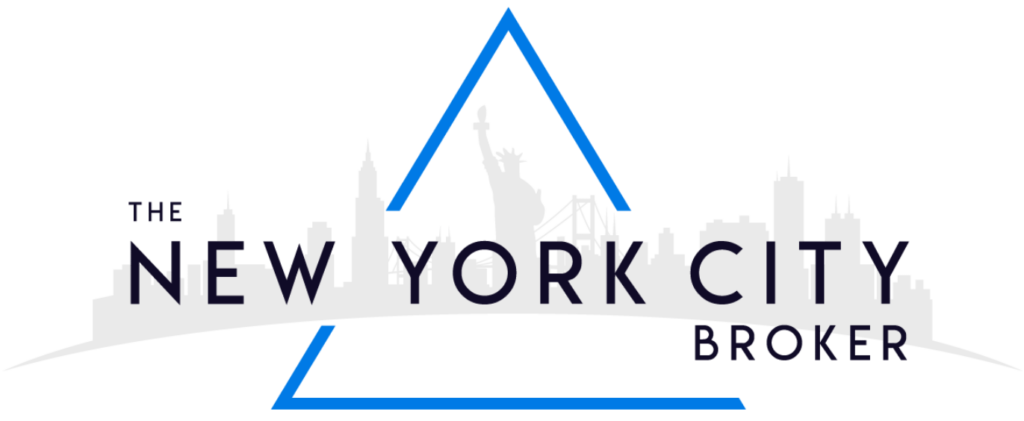Co-op Board Package Components
Following are some of the most common components of co-op board packages. The labels might be different on the board package checklists of different co-ops, and some co-op boards may require more or fewer documents.
Purchase Application: The purchase application is one of the most important documents in a co-op board package. It’s a comprehensive document that provides the co-op board with almost every piece of information they need regarding the transaction that will take place if the board approves the purchase. As a buyer, you will need to provide detailed information about yourself in this application, including your work experience, educational history, your family members, whether you own a pet, any important social associations, criminal history, etc. You will also need to provide emergency contact information, contact information for your agent, how much financing you are getting, and when you expect to move in (if the sale goes through). It may seem invasive, but the boards in co-ops can ask for these details and use them to make a decision about you as an applicant. Unless the decision is based on discrimination, you have no legal/formal discourse. But it may be near impossible to prove you were denied based on discrimination, though many have tried to overturn the board’s decision in a rejection scenario.
Personal Financial Statement: A REBNY financial statement might suffice as a comprehensive enough financial document for most co-op boards in the city. However, you may come across co-op boards that may require additional financial disclosures like proof of assets or proof of funds. That information may be relevant to the board as it shows that you have adequate funds/assets to cover the required down payment (which may be different from a lender’s requirement) and enough funds to cover one to two years of maintenance if you couldn’t cover it with your income. The basic idea is that they need enough financial information to gauge your financial viability.
Tax Returns and Proof of Income: Co-op boards also like to see supporting documents for the financial information you have provided. Tax returns and salary slips are two primary documents, but they may ask for others as well. Most co-op boards require at least two years of tax returns and six months of salary slips. The financial disclosures and income proof requirements may be different for self-employed individuals and freelancers.
Reference Letters (Personal and Professional): Most co-op board reference letters fall into four categories. Letters from people who know you personally, your professional associates/acquaintances, your previous landlord (if you were renting before this), and your employer. They may ask for multiple letters from your professional and personal contacts (usually two or three) and one each from your previous landlord and employers.
Credit Report Release Form: Your credit reports are an important part of the financial “picture” you are painting for the co-op board. The release form gives the co-op board permission to run a credit check on you. It’s typically the management company that runs this credit check, but the information is shared with the co-op board, and they may scrutinize your credit history more thoroughly if your credit score is on the lower side or doesn’t match your financials. In addition, they may also ask for credit card statements.
Employment Verification: You may also be asked to submit an employment verification letter. This assures the co-op board that you have a consistent and reliable income stream. For self-employed individuals, alternatives like a letter from the accountant/accounting service you have used for a long time or financial/income statements going back a few years that endorse your income consistency may be viable.
Loan Application and Commitment Letter: Unless you are buying in cash, you may need to attach the loan application (copy) and the mortgage commitment letter from your lender, ideally a lender that has approved loans for that co-op before.
Aztec Recognition Agreement: The Aztec Recognition Agreement assures the co-op board that even if you, as a buyer, stop paying maintenance fees, the lender will cover them, making a financial safeguard for the co-op board. The board, in turn, recognizes the bank’s/lender’s primary lien against the shares of the co-op.
The co-op you are buying in may have different, more extensive requirements when it comes to the board package. You will also be on the hook for multiple fees that will go along with the co-op board. It includes an application processing fee and fees for running a credit check and a background check. All of these fees are non-refundable, though there may also be one or two refundable deposits you may need to make when you are submitting the co-op board application.
The timeline for how long it will take the co-op board to go over your board package/application varies from one co-op to another. In some co-ops, where the board meets on a regular basis, it may take less time. The average timeline is somewhere between two and four weeks, but it can easily take multiple months depending on the building and board. The good news is that most boards make the decision to reject or accept the buyer based on the board package they have submitted. So, if the board calls you for an interview, the chances of getting approved may be significantly higher than the chances of getting rejected.
Co-op Board Package Preparation Best Practices
A few best practices that may help you prepare the co-op board package the right way and increase your chances of getting approved are:
- Make sure you get started as early as possible. Starting early will give you ample time to collect all the necessary documents, compile the information, and reach out to relevant individuals and entities. This includes the co-op management company/property manager that you may need to reach out to for clarification regarding the board package or more information. You will also need to choose and reach out to your references. You will also need time to familiarize yourself with the online board package submission requirements.
- Ensure consistency in your financial statement, disclosures, and supporting documents. Make sure the numbersmake sense all around. Inconsistencies may annoy the board members at best or make them think that you are trying to hide something at worst. Apart from lowering your chances of approval, financial inconsistencies can also lead to a delay in the deliberation because the more they have to pore over your finances, the longer they may take.
- A seller’s agentmay prove to be a valuable resource to you, especially if you are buying without an agent. But even if you are buying with an agent, they can offer a lot of useful information. If they have represented multiple sellers from the co-op you are buying in, they would have a good understanding of what the co-op board looks for in a buyer and may help you present yourself (through your board package) in a favorable light.
- Be as meticulous as possible when preparing and submitting a co-op board package. It will makea good impression if you follow the checklist to the letter and provide additional information that may help them navigate everything you have sent over more easily. Steps like carefully naming your documents (when you are submitting your application online) can present you as an organized individual and may go a long way toward your approval.
- Don’t shy away from reaching out to the relevant people in a co-op if you have any confusion about the board package/application. It’s much better than submitting an incomplete application or providing the wrong information. However, instead of reaching out to them several times, make sure you go through the requirements/checklist (ideally with your agent) and determine what you need to ask.
- A cover letteris not an official requirement in most co-op board packages. It can be a positive addition, but only if written following some best practices. It’s important to realize that you are providing a co-op board with a massive amount of information in the package, especially about your financials. The cover letter must not reiterate what they will find in the other documents. Instead, it should humanize the information you have provided and, if possible, add another dimension to your application or yourself as the candidate, like how your professional expertise can be helpful to the business. Complimenting the building or how it’s run can also be helpful, but be concise.
- You may use the cover letter to preemptively answer some questions that the board may have about you, especially concerning your financials. For example, if your credit score is close to the lower edge of “Good,” you can share the reason why it has dipped. Or if you have received the money for a down payment from family or friends and may cast doubt on your ability to raise necessary funds yourself, you can mention your liquidity or investments.
- Your reference lettersare an important part of the board package, so make sure you choose the right people to write those references. Professional reference letters can be from your colleagues, seniors, managers, business partners, or even clients. They should focus on presenting you as an organized and competent individual, which endorses professional consistency or growth. They can also present you as a good team player in a professional manner, which will present you as a potentially good community member/neighbor. For personal letters, choose the people who have known you for an adequate amount of time and, ideally, live in a co-op. They may be able to include qualities like a quiet lifestyle, focus on cleanliness, good financial habits, etc., that co-op boards look for. Personal letters should sound personal and genuine. If they seem like they are “marketing” you as a buyer, it may not make a good impression on the board.
- Board membersmay also look into you through your social media and online presence (Facebook, LinkedIn, Instagram, etc.), so make sure the person they see online and the person they “see” through the board package are not so radically different that they start thinking that one of you is fake.
- If you have to submit your board package through a specific online system/tool, make sure you research it in advance. If you have information on any problems or quirks of the system, you may have an easier time submitting your board package.
- Make your peace with sharing almost your entire financial information with the co-op board and answering a lot of invasive questions in the board package because if you keep looking for ways to share as little as possible, it may lead to an incomplete board package.
Financials are perhaps the most crucial part of a co-op board package, but you should try to be as transparent and clear about the rest of the information in your board package as possible. The more answers you can provide to the co-op board before the interview phase, the better it may be for your approval.
Co-op Board Interview
If you are called for a co-op board interview, it means your board package has been considered satisfactory. Board interviews can range from cursory, especially if the board has already made up its mind to accept your application. You can still ruin your chances of getting approved by providing the wrong answers or behaving poorly. Some co-op board interviews may be as invasive as the board package was, so you have to be mentally prepared for that. A few good practices associated with co-op board interviews are:
- Dress appropriately and formally, but nothing too stiff or ostentatious. You should be comfortable in whatever you are wearing.
- If your board package was prepared by your agent, make sure you know what’s in it. If your answers don’t match what was shared in the board package, it can alert the board.
- Be truthful, clear, and concise in your answers but not curt. Don’t answer more than what’s asked.
- Don’t mention your renovation plans (even if you have any) unless you are buying a distressed property. In that case, supplying renovation plans with the board package would be advisable.
- Be ready to answer questions about your lifestyle or family that may have an impact on your neighbors, primarily noise. This may include questions about the habits of your children, any instrument you play, your social life, or the behavior of your pets.
- If you are downsizing, never say that you are doing it for a financial reason. This may cast a shadow over your financial viability. You can say that a smaller place fits better with your needs and is easier to manage.
- If you are buying the co-op with your partner and both of you are present in the interview, decide who will answer the questions. Ideally, you should both answer at least some of the questions.
- Be prepared to answer why you chose this particular co-op. Affordability, proximity to work, conditions, etc., might all be viable reasons, but you don’t have to share all of them.
If there are any inconsistencies in your application or if the financial information you have provided borders on unsatisfactory, the co-op board interview can be a great opportunity to set the record straight. It may feel like a job interview, and in most aspects, it is akin to a job interview, but remember that the board members are not just interviewing another partner in the co-op; they are interviewing a neighbor and a new member of the community.














